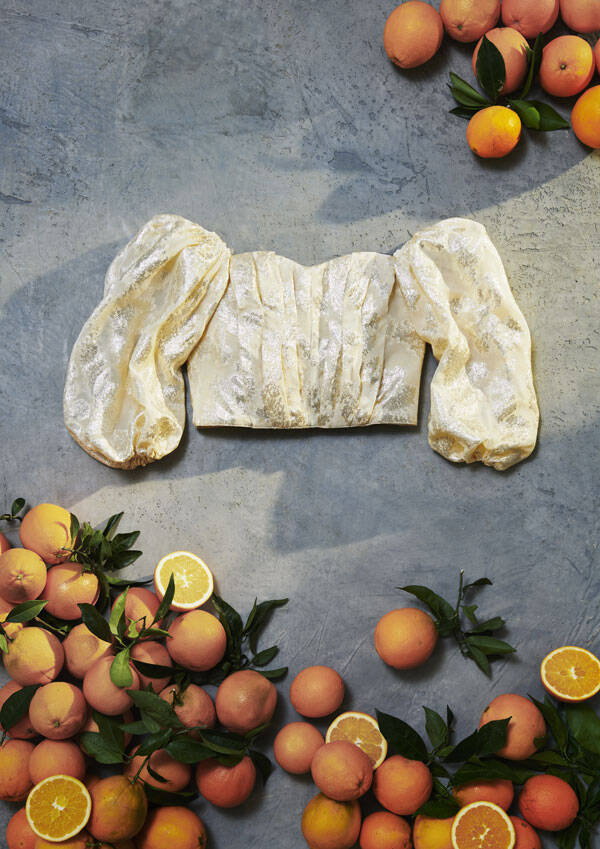Orange Fiber, Italy

Qmilk now produces fibers for the fashion industry, the packaging industry and the cosmetics industry, and founder Domaske is committed to saving even more of the two million tons of milk wasted in the sector every year.
Qmilk in Germany makes textiles, cosmetics and biodegradable plastic from milk that is not suitable for consumption. These waste streams from the dairy industry end up well after all.
Founder of the company is Anke Domaske, who was originally searching for chemically untreated clothing for her stepfather with cancer. Eventually milk proteins came to her interest. Those had already been processed to textiles in the 1930s, but the fibers were treated with various chemicals and produced in a complex process.
Domaske put together a laboratory in her kitchen and started experimenting with a process in which the milk could be processed without chemical additives, into fibers that were suitable for clothing. After a long time of experimenting, she found several ways to the process the milk and started her company Qmilk in 2011.

Qmilk, Germany
© Chris Miller
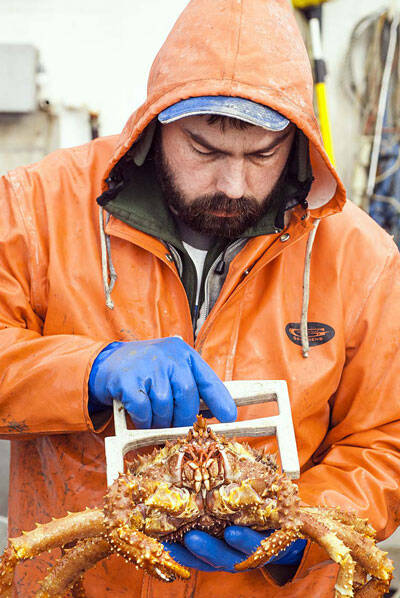
© Tidalvision
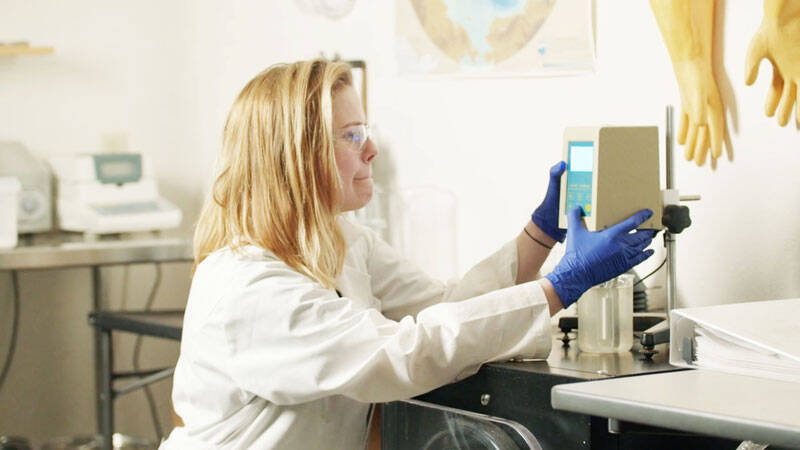
Tidal Vision was therefore founded to combat this kind of waste and encourage sustainable fishing practices by purchasing discarded byproducts from sustainably managed fisheries. We then upcycle that waste into eco-friendly chitosan chemistry solutions that displace synthetic chemicals.
Does Tidal Vision have plans to start new collaborations or to expand abroad?
Yes. We will continue to expand our operations abroad. We are currently selling into South America, Central America, Australia, Asia, Europe and North America (US & Canada).
Our vision is about more than just mitigating an environmental threat, reducing waste and displacing synthetic chemicals across entire industries. Sustainable fisheries face an economic disadvantage compared to their pillaging competitors. By purchasing their waste for high-value uses, our business model adds value and therefore increases the resiliency of sustainable fisheries.
In Alaska, former fishermen developed a way to extract chitin, the raw material for chitosan, from shellfish waste. Chitosan is a biopolymer suitable, among other things, for the development of antibacterial food packaging or as a raw materials for textiles. Director of Business Development Kari Ingalls explains.
When did the founders get the idea to start Tidal Vision?
Inspired by coastal communities whose traditions, cultures, economies, and ecosystems depend on ocean sustainability, Tidal Vision was founded on the belief that sustainability should never be a compromise, for example on price, convenience, or performance.
In Alaska alone, two billion pounds of fish and crab byproducts are discarded to rot annually. This waste not only represents missed economic opportunity, but also poses potential environmental threats when concentrated on the ocean floor. Our co-founder and CEO, Craig Kasberg, worked on commercial fishing boats in Alaska from the age of 14. He even Captained his own vessel at age 19, and wanted to see the byproducts utilized from the industry he grew up in.
Tidal Vision, USA

© Orange Fiber
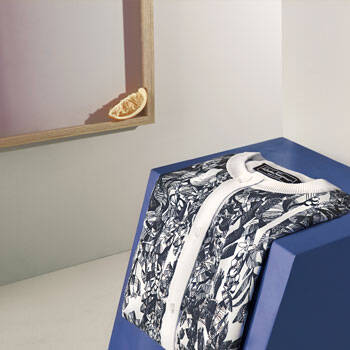
© Orange Fiber
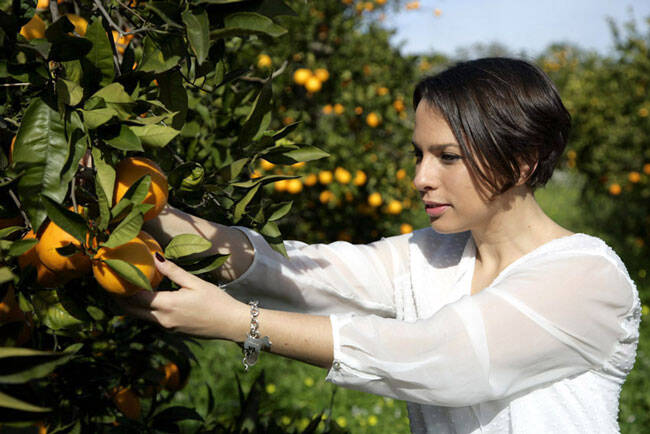
CEO & Co-Founder Enrica Arena was born in Catania, a region well known for the high quality in citrus fruits. Enrica holds a degree in International Cooperation for Development as well as in Communications, where she has a diverse range of experiences in non-profit sectors and project management. She is now in charge of communication, marketing and fundraising.
Source: Orange Fiber
orangefiber.it
The Italian company Orange Fiber was founded in 2014 by Adriana Santanocito and Enrica Arena. They patent and manufacture sustainable fabrics for the Fashion Industry from citrus juice by-product.
Sicilian roots and international ambition represent the soul of this young and dedicated company that in the last years has been awarded with a number of prizes by national and international institutions for its impact and vision. Their innovative products have been part of important exhibitions, two of which at the famous V&A Museum in London.
An exclusive Salvatore Ferragamo ensemble crafted with Orange Fiber was showcased at the V&A Museum for the Fashioned from Nature exhibition, the first UK exhibition to explore the complex relationship between fashion and nature from 1600 to the present day - and a sample of fabric from oranges has been showcased for FOOD: Bigger than the Plate, a special exhibition dedicated to explore current experiments at every stage of the food system – from compost to table.
© Orange Fiber
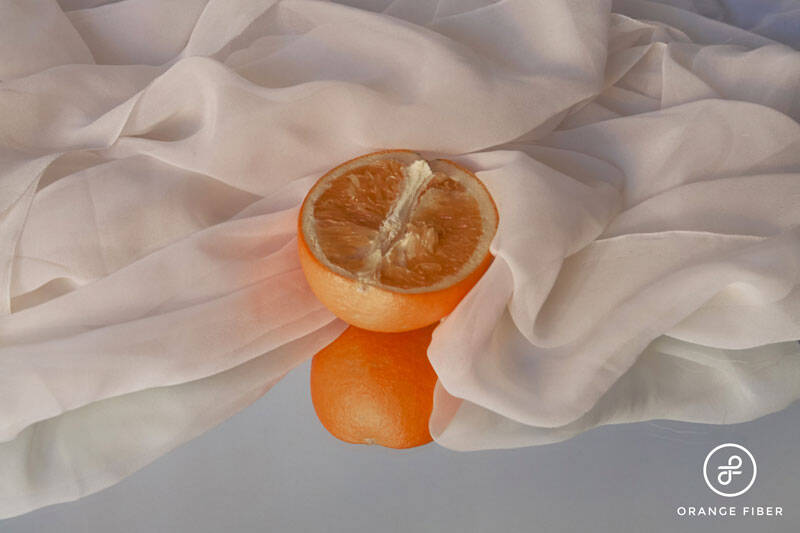
Upcycling means adding value. Even to something "worthless" like waste. Innovative companies worldwide are looking for possibilities to make something from nothing. We selected three examples that create beauty from something that used to be just waste.
Joost Scholten Xiao Er Kong
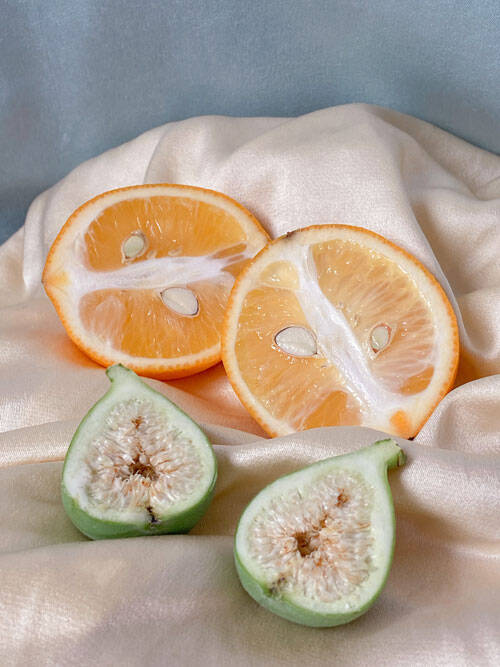
cool concept
4 min
from food to fiber
© Orange Fiber
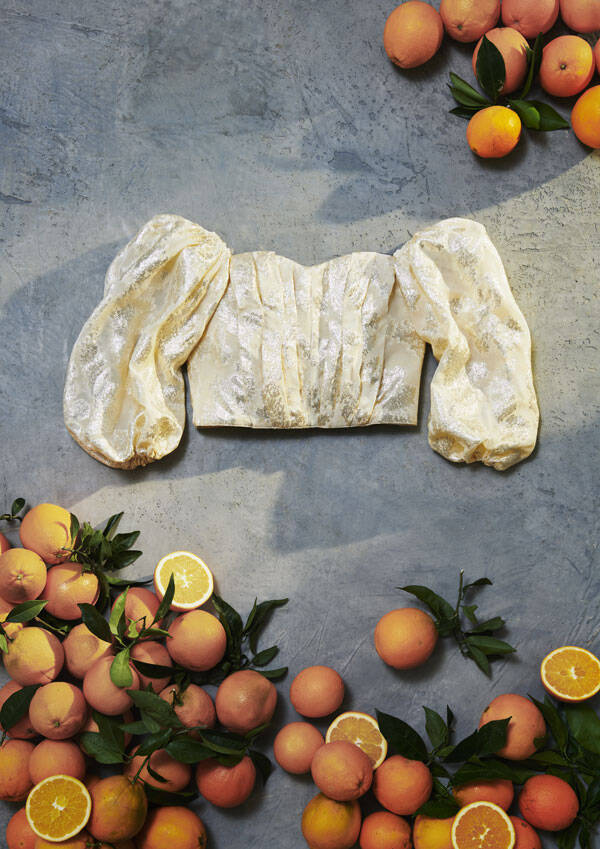
Qmilk now produces fibers for the fashion industry, the packaging industry and the cosmetics industry, and founder Domaske is committed to saving even more of the two million tons of milk wasted in the sector every year.
Qmilk in Germany makes textiles, cosmetics and biodegradable plastic from milk that is not suitable for consumption. These waste streams from the dairy industry end up well after all.
Founder of the company is Anke Domaske, who was originally searching for chemically untreated clothing for her stepfather with cancer. Eventually milk proteins came to her interest. Those had already been processed to textiles in the 1930s, but the fibers were treated with various chemicals and produced in a complex process.
Domaske put together a laboratory in her kitchen and started experimenting with a process in which the milk could be processed without chemical additives, into fibers that were suitable for clothing. After a long time of experimenting, she found several ways to the process the milk and started her company Qmilk in 2011.

Qmilk, Germany
© Tidalvision
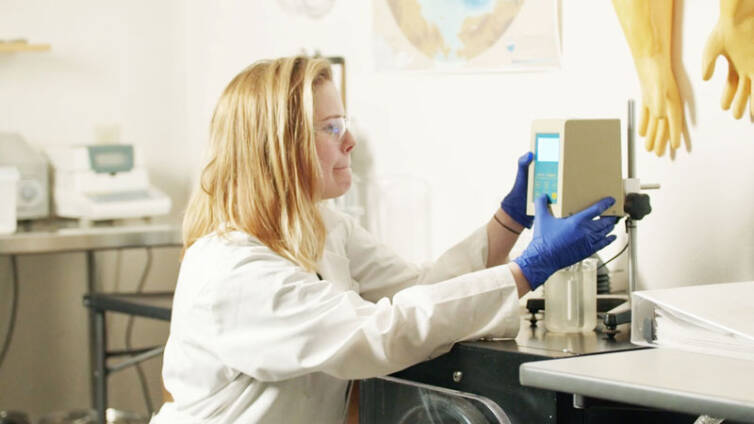
Tidal Vision was therefore founded to combat this kind of waste and encourage sustainable fishing practices by purchasing discarded byproducts from sustainably managed fisheries. We then upcycle that waste into eco-friendly chitosan chemistry solutions that displace synthetic chemicals.
Does Tidal Vision have plans to start new collaborations or to expand abroad?
Yes. We will continue to expand our operations abroad. We are currently selling into South America, Central America, Australia, Asia, Europe and North America (US & Canada).
Our vision is about more than just mitigating an environmental threat, reducing waste and displacing synthetic chemicals across entire industries. Sustainable fisheries face an economic disadvantage compared to their pillaging competitors. By purchasing their waste for high-value uses, our business model adds value and therefore increases the resiliency of sustainable fisheries.
In Alaska, former fishermen developed a way to extract chitin, the raw material for chitosan, from shellfish waste. Chitosan is a biopolymer suitable, among other things, for the development of antibacterial food packaging or as a raw materials for textiles. Director of Business Development Kari Ingalls explains.
When did the founders get the idea to start Tidal Vision?
Inspired by coastal communities whose traditions, cultures, economies, and ecosystems depend on ocean sustainability, Tidal Vision was founded on the belief that sustainability should never be a compromise, for example on price, convenience, or performance.
In Alaska alone, two billion pounds of fish and crab byproducts are discarded to rot annually. This waste not only represents missed economic opportunity, but also poses potential environmental threats when concentrated on the ocean floor. Our co-founder and CEO, Craig Kasberg, worked on commercial fishing boats in Alaska from the age of 14. He even Captained his own vessel at age 19, and wanted to see the byproducts utilized from the industry he grew up in.
Tidal Vision, USA

© Orange Fiber
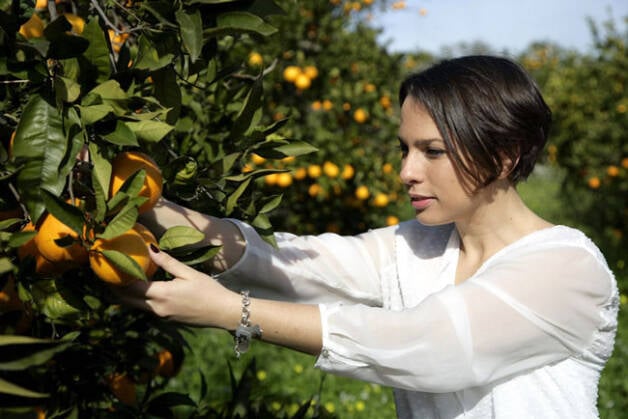
CEO & Co-Founder Enrica Arena was born in Catania, a region well known for the high quality in citrus fruits. Enrica holds a degree in International Cooperation for Development as well as in Communications, where she has a diverse range of experiences in non-profit sectors and project management. She is now in charge of communication, marketing and fundraising.
Source: Orange Fiber
orangefiber.it
The Italian company Orange Fiber was founded in 2014 by Adriana Santanocito and Enrica Arena. They patent and manufacture sustainable fabrics for the Fashion Industry from citrus juice by-product.
Sicilian roots and international ambition represent the soul of this young and dedicated company that in the last years has been awarded with a number of prizes by national and international institutions for its impact and vision. Their innovative products have been part of important exhibitions, two of which at the famous V&A Museum in London.
An exclusive Salvatore Ferragamo ensemble crafted with Orange Fiber was showcased at the V&A Museum for the Fashioned from Nature exhibition, the first UK exhibition to explore the complex relationship between fashion and nature from 1600 to the present day - and a sample of fabric from oranges has been showcased for FOOD: Bigger than the Plate, a special exhibition dedicated to explore current experiments at every stage of the food system – from compost to table.
Orange Fiber, Italy

© Orange Fiber
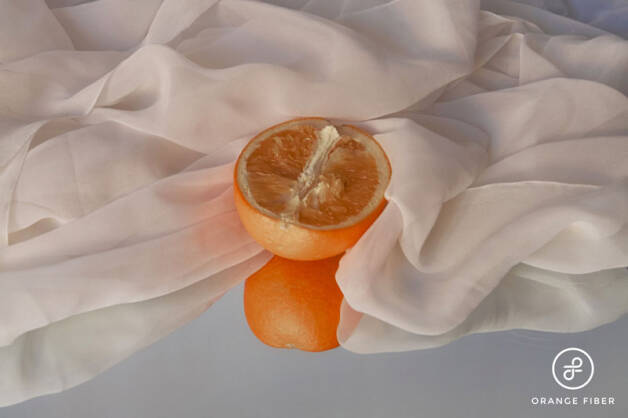
Upcycling means adding value. Even to something "worthless" like waste. Innovative companies worldwide are looking for possibilities to make something from nothing. We selected three examples that create beauty from something that used to be just waste.
Joost Scholten Xiao Er Kong


4 min

© Orange Fiber
